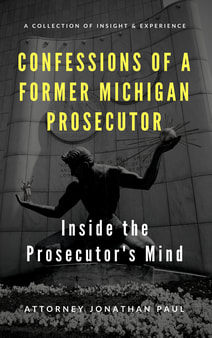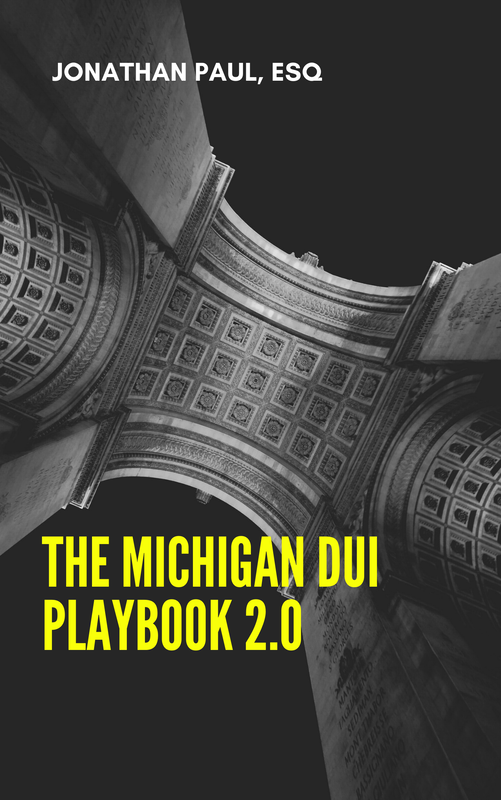DUI Michigan 911 Tip Called in lead to traffic stop and arrested for drunk driving - move to dismiss5/4/2016
I handle a number of DUI cases each year, which originate with a 911 call placed by an eyewitness to the police department. These calls are made by other drivers, pedestrians and sometimes pranksters. The one thing they have in common is they are usually referred to as anonymous tips.
Sometimes we have an actual physical known witness, but that is quite rare. These “tips” result in a number of traffic stops, usually without additional direct officier observation of driving or even a traffic code violation. Michigan law says that an anonymous tip by itself cannot create the reasonable suspicion necessary for a Terry stop, but if the officers see for themselves that part of the information in an anonymous tip is true, then the officers may reasonably rely on it. The court standard is known as totality of the circumstances. For example, if someone calls 911 and reports a red pickup truck driving crazy on I-75, but very little additional information, it’s unlikely the police can just pull over the first red pickup truck they see on I-75. The Court is looking for adequate indicia of reliability. Nothing prevents them from making the stop, but if fruits of a crime are discovered or suspicion of a DUI offense comes from the stop, then a motion to dismiss should be filed immediately. This same red pickup truck has a better argument for being pulled over if the caller also provided a license plate number, the make and model, possibly a description of the driver or any other specific facts about poor driving, and the officer can confirm these facts. There is no right or wrong amount of additional information; each set of facts will dictate a different evaluation. Further, if the cops show up on I-75 and spots a red pickup truck, and he sees the driver commit a traffic violation, it no longer matters what the 911 call says, because they have an independent reason to pull the truck over. The Michigan Supreme Court has previously ruled that citizen-informants reporting suspicious activities that they have personally observed should be deemed inherently reliable “when the information is sufficiently detailed and is corroborated within a reasonable period of time by the cops own observations.” Anytime a 911 call is the basis of a traffic stop for a DUI case, it’s important to begin with the source of the information. Actually listening to the 911 call, and any subsequent dispatch recordings or logs. It’s a viable defense to challenge a traffic stop when the police officer lacks independent reasoning for conducting the stop. This is a good situation to lock the officer into his police report, and get him to admit that he himself did not observe any traffic violations, but rather relied on the 911 tipster information. He may say he verified the license plate or the general area where the car was, but this is ripe for challenge. If the officer observed his own reasonings, the evaluation would be outside the scope of the 911 tipster defense theory. If he did not, then we need to lock him into this story, because we can then focus our efforts on discrediting what the caller said, and relying on the caller’s observations. Here is an example of how my client would challenge their case with a 911 tipster involved. Let’s assume that someone calls 911 on my client and reports that my client is driving a red pickup truck and going in and out of lanes, and the caller says my client is driving drunk; they provide the streets where they saw the driving, and the direction the truck is headed. First we need to assess whether this is an anonymous caller or was a name and other information provided. If witness information is available then they would likely be a witness for the prosecution, and they would be cross-examined about their observations. If the caller is truly anonymous then a motion to dismiss would be viable without confirmation by the police. This would mean that when the officer found the red pickup truck, the truck was complying with the law, and the only reason for the traffic stop was the information from the call. We could argue that the caller was wrong, lying, mistaken or simply this is a different red truck. No matter the truth, the burden is on the prosecutor here. We would argue that based on the totality of the circumstances, even if a license plate is confirmed or some other information, that absent the corroboration of the poor driving or traffic violations, the stop was illegal, and any evidence thereafter should be seized. This argument has been a winner before in Michigan courts, in the People v Barbarich case, the Court stated that “an uncorroborated tip emanating from an unidentifiable source lacking any pertinent detail and suggesting only an ordinary traffic violation” did not justify the warrantless search and seizure. The argument is that the law cannot allow any prankster or disgruntled driver to initiate a seizure of another motor vehicle without an officer’s confirmation. Driver’s have the right to be left alone, and cannot be harassed on the road absent a valid reason to be seized in their cars. This type of motion really comes down to the facts of your case, and the judge hearing the motion. It can go either way, but this type of challenge is always worth the effort, because your case can be dismissed on the spot without the risk of trial. |
Click to Email Me Categories
All
|
Ann Arbor Office LocationPlymouth Office Location |
Representing DUI Clients in MichiganRepresenting clients charged with a DUI in Ann Arbor, Canton, Brighton, Howell, Saline, Adrian, Taylor, Plymouth, Northville, Westland, Ypsilanti, Pittsfield Towsnhip, Warren, Sterling Heights, Farmington, Pontiac, Romulus, Lansing, Novi, South Lyon, Southfield, Birmingham, Bloomfield Hills, Royal Oak, Troy, Rochester, Jackson, East Lansing, Garden City, Livonia, Dearborn, Detroit, St Clair Shores, Hazel Park, Ferndale, Madison Heights, Waterford, Milford, Shelby Township Clarkston, Oak Park, Berkley, Fraser, Sterling Heights, Clinton Township and others throughout Washtenaw, Wayne, Monroe, Jackson, Genesee, Macomb, Ingham, Lenawee, Livingston and Oakland County.
|







